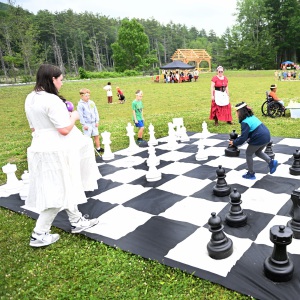Let’s Talk Relationships: Listening well is a relationship superpower: Advice for building better communication

| Published: 05-23-2025 9:55 AM |
What do you think is the No. 1 issue couples bring to therapists and relationship coaches? If you guessed communication, you’re right.
At its core, communication has two parts: expressing and listening. When both are done well, they create a strong foundation of trust, understanding and connection. From an early age, every human being needs to express themselves — to share feelings, needs, boundaries, hopes, dreams, and more. Equally important is the need to be listened to — to be seen, heard and respected.
Yet many of us struggle with both sides. We stumble when trying to express our true inner world clearly, and we can often find it difficult to listen to someone else with full presence and acceptance. Unsurprisingly, challenges in these two areas are often at the heart of relational pain — distance, arguments, resentment, and emotional disconnection.
The good news? Couples can learn to relate in new, healthier ways — even after years of painful and entrenched patterns. The saying, “If you want something different, you have to do something different,” applies here. When a couple begins to replace old behaviors with new, intentional practices of healthy relating, they can co-create what we all long for: a truly loving, thriving relationship.
For now, let’s focus on the listening side of communication. Here are four common roadblocks that often get in the way — and how to move past them:
Sometimes we interrupt because we’re enthusiastic, we relate to what’s being said, or we think we already know where the conversation is going. Even well-meaning interruptions can make someone feel dismissed. It sends the message: What I have to say is more important than what you’re saying. Interruptions cut off more than words — they disrupt trust, emotion, and often the courage it took to speak in the first place. Interrupting from defensiveness or the need to “be right” is even more damaging. In those moments, we’re not listening — we’re focused on ourselves. True listening requires restraint and respect. It means pausing — sometimes even waiting a few extra beats after the other person finishes — to let their words land, and to let your own reaction settle.
Next time you’re in conversation, count to three after the other person stops talking. Give them space to add more. A pause signals that you’re genuinely taking in what they’ve shared. You don’t have to necessarily agree to be a good listener — just respect what’s real for them.
Often, we jump into problem-solving mode, thinking we’re being helpful. But most of the time, people aren’t looking for solutions — they just want to feel heard and understood. Believe it or not, the most helpful thing we can often do is simply listen deeply. Jumping to fix can sometimes come from our own discomfort with strong emotions. We want the other person to feel better … so we can feel better. If we grew up in homes where feelings were minimized or discouraged, we may have learned to suppress them in ourselves — and struggle to tolerate them in others.
Article continues after...
Yesterday's Most Read Articles
 Erving convenience store sells winning $1M scratch ticket
Erving convenience store sells winning $1M scratch ticket
 Franklin County protest organizers join ‘No Kings’ movement
Franklin County protest organizers join ‘No Kings’ movement
 History comes to life at Fisher Hill Elementary School’s Renaissance fair
History comes to life at Fisher Hill Elementary School’s Renaissance fair
 Western Franklin County towns to pursue grant for regional ambulance study
Western Franklin County towns to pursue grant for regional ambulance study
 Final Four No More: Pioneer baseball breaks through, routs Hopedale for spot in D5 championship at Polar Park
Final Four No More: Pioneer baseball breaks through, routs Hopedale for spot in D5 championship at Polar Park
 Juveniles arrested for alleged vehicle theft, crashing into house in Deerfield
Juveniles arrested for alleged vehicle theft, crashing into house in Deerfield
When someone shares feelings — frustration, sadness, anger, fear, etc. — resist the urge to fix. Be present. Offer your full attention, warmth, and patience. A nod, a kind look, or a simple touch (with permission) often goes further than advice. Let them feel before inviting them to think. When emotions are high, one’s ability to access rational thinking is limited anyway. Solutions can come later — when the time is right and is welcomed.
We’ve all experienced distracted listening — someone scrolling their phone, multitasking, or mentally somewhere else. Responses like “Mmm-hmm,” “Huh?” or “What did you say?” can feel discouraging and disconnecting. Being physically present but mentally absent can result in people feeling unimportant.
When someone wants to talk (such as sharing how they were negatively impacted by something you said or did), ask yourself: Can I give them my full attention right now? If not, be honest — suggest a better time and follow through. When you are ready, be all in. Make eye contact. Silence notifications and put your phone down. Resist any urge to multitask. Your focused presence says: You matter to me.
When someone shares something emotional or vulnerable, our role isn’t to evaluate — it’s to understand. Responses like “You’re overreacting,” “It’s not that bad,” or “You’re too sensitive” can be experienced as shaming and silencing. They send the message: It’s not safe to be vulnerable with me.
Replace any judgment or criticism with curiosity. Ask, “Help me understand what that was like for you,” or “Tell me more.” If you notice yourself slipping into critique, pause — and shift to genuine interest. Ask open-ended questions. Remember, listening well doesn’t mean you are necessarily agreeing; it’s about connecting with what is true for them.
In closing, listening well means being fully present — not just hearing words, but also noticing tone, pauses, sighs, and the feelings beneath the surface. It takes effort, restraint, and heart. But when done with intention, listening becomes a quiet superpower. Listening builds bridges. It deepens trust. It communicates love.
I am cheering you on by inviting you to practice this:
When your partner or anyone else wishes to express themselves to you, give them your full attention. Stay curious. Stay open. Truly listening, by replacing the above roadblocks with your full presence, may be the greatest gift you can give.
Amy Newshore is a couples therapist/coach who earned her Masters in Clinical Mental Health Counseling at Antioch New England University and went on to train in the Developmental Model for Couples Therapy along with NonViolent Communication which serve as the foundation of her work as a Relationship Coach. For more information visit her website at www.coachingbyamy.com.






 Sounds Local: Returning to their roots: The Whiskey Treaty Roadshow brings annual Mountain Day festival to Berkshire East on Saturday
Sounds Local: Returning to their roots: The Whiskey Treaty Roadshow brings annual Mountain Day festival to Berkshire East on Saturday Speaking of Nature: The pressures of parenthood: Bird dads, like human dads, deserve a happy Father’s Day
Speaking of Nature: The pressures of parenthood: Bird dads, like human dads, deserve a happy Father’s Day Simple and scrumptious: Welsh Rabbit is neither rabbit nor Welsh, but it’s supreme comfort food
Simple and scrumptious: Welsh Rabbit is neither rabbit nor Welsh, but it’s supreme comfort food A star is born: Greenfield teen lands starring role first time acting in independent feature film
A star is born: Greenfield teen lands starring role first time acting in independent feature film
